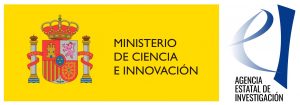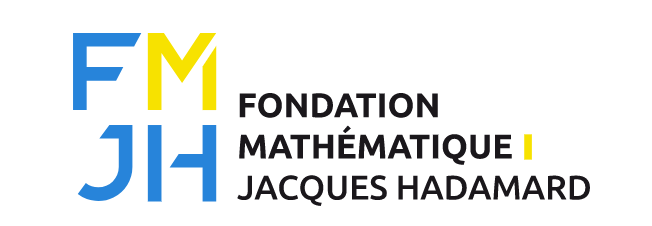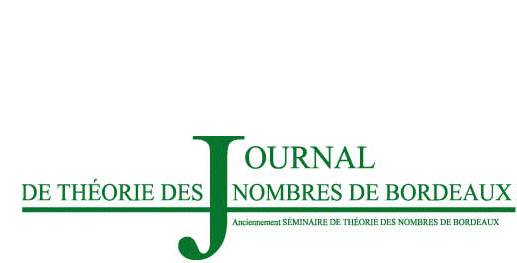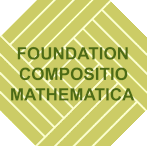CONFERENCE
Global invariants of arithmetic varieties
Invariants globaux des variétés arithmétiques
9 – 13 October, 2023
Scientific Committee
Comité scientifique
Javier Fresán (École Polytechnique)
Klaus Künnemann (University of Regensburg)
Matilde Lalín (Université de Montréal)
Anna-Maria Pippich (University of Konstanz)
Organizing Committee
Comité d’organisation
Ana Botero (University of Bielefeld)
Gerard Freixas i Montplet (CNRS, Ecole Polytechnique)
Alberto Navarro Garmendia (University Politecnica Madrid)
Martin Sombra (ICREA & University of Barcelona)
Contact : global.invariants.2023@gmail.com
Algebraic varieties defined over number fields, called arithmetic varieties, can be studied from several points of view: algebraic geometry, algebraic number theory, complex geometry and analysis, non-Archimedean geometry, etc. Historically, these disciplines have been combined for the treatment of Diophantine problems. The usual strategy consists in encoding the different facets of arithmetic varieties in their global invariants, that are objects that systematically measure and constrain the possible integral solutions. They can refer both to the size and to the arithmetic complexity e.g. in the theory of heights, as well as the obstruction for realising certain geometric constructions e.g. in the various cohomological theories. This approach has evolved and has given rise to new topics and questions that are actively being developed today: Arakelov geometry and arithmetic intersections, motives, periods, regulators, etc.
In this conference we propose to gather researchers who approach the global invariants of arithmetic varieties from several angles. We aim to foster the interaction between those interested in fundamental geometric aspects of complex, non-Archimedean and cohomological nature on the one hand, and concrete aspects such as Diophantine problems on the other hand. We hope that the participants will have the opportunity to discover the questions that their peers are facing, and that this will motivate interdisciplinary collaborations.
Les variétés algébriques définies sur les corps de nombres, appelées variétés arithmétiques, peuvent être étudiées sous plusieurs points de vue : géométrie algébrique, théorie algébrique des nombres, géométrie et analyse complexes, géométrie et analyse non-archimédiennes, etc. Historiquement, ces disciplines ont été combinées pour le traitement de problèmes diophantiens. La stratégie habituelle consiste à encoder les différentes facettes des variétés arithmétiques dans des invariants globaux. Ce sont des objets qui mesurent et contraignent, de manière systématique, les possibles solutions de ces équations. Il peut s’agir tant de la taille et de la complexité arithmétique e.g. dans la théorie des hauteurs, comme de l’obstruction pour réaliser certaines constructions géométriques e.g. dans les diverses théories cohomologiques. Cette démarche a évolué et a donné naissance à des nouveaux sujets et questions activement développées aujourd’hui : géométrie d’Arakelov et intersections arithmétiques, motifs, périodes, régulateurs, etc.
Dans cette conférence on se propose de réunir des chercheurs qui abordent les invariants globaux des variétés arithmétiques sous plusieurs angles. On vise à faire intéragir celles et ceux qui s’intéressent aux aspects géométriques fondamentaux de nature complexe, non-archimédienne ou cohomologique d’un côté, et les aspects concrets tels que les problèmes diophantiens de l’autre. On espère ainsi que les participants auront l’occasion de découvrir les questions auxquelles leurs pairs sont confrontés, et que cela motivera des collaborations interdisciplinaires.
We would like to dedicate this conference to José Ignacio Burgos Gil, who has made major contributions to the topics discussed.
SPEAKERS
Claudia Alfes-Neumann (Bielefeld University) On harmonic weak Maass forms associated to even integer weight newforms
François Ballaÿ (Université de Caen-Normandie) Equidistribution of small points on projective varieties
Debam Biswas (University of Regensburg) Convex bodies associated to Adelic divisors on Quasi-Projective Varieties
Jean-Benoît Bost (Université Paris-Saclay) Global invariants of arithmetic varieties and infinite dimensional geometry of numbers
Ana Botero (University of Bielefeld) Rings of Siegel-Jacobi forms of bounded relative index are not finitely generated
Sébastien Boucksom (CNRS, Institut de Mathématiques de Jussieu) On the regularity of solutions to non-Archimedean Monge-Ampère equations
Francis Brown (University of Oxford) Borel regulators, cohomology of the general linear group, and Feynman integral
Jan Hendrik Bruinier (TU Darmstadt) Arithmetic volumes of unitary Shimura varieties and Kudla-Rapoport divisors
François Charles (ENS Paris & Université Paris-Saclay) Global invariants of arithmetic varieties and infinite dimensional geometry of numbers II: quasi-coherent sheaves and arithmetic applications
Sara Checcoli (Institut Fourier Grenoble) Around property (N)
Huayi Chen (Institut de Mathématiques de Jussieu) Asymptotic slopes and positivity of adelic line bundles
Robin De Jong (Leiden University) On the adelic theta line bundles for principally polarized abelian schemes
Paolo Dolce (Ben Gurion University of the Negev) Roth’s theorem for adelic curves
Mathieu Dutour (Université Grenoble Alpes) Quillen metrics on modular curves
Walter Gubler (University of Regensburg) Forms on Berkovich spaces based on harmonic tropicalizations
David Holmes (Leiden University) Measuring when a line bundle on a curve is trivial
Nuno Hultberg (University of Copenhagen) Fields with few small points
Matt Kerr (Washington University in St. Louis) Differential equations, hypergeometric families, and Beilinson’s conjectures
Jürg Kramer (Humboldt University Berlin) José Burgos’ variations of arithmetic intersection theory
Marco Maculan (Institut de Mathématiques de Jussieu) The Shafarevich conjecture for subvarieties of abelian varieties
Enrica Mazzon (University of Regensburg) (Non-archimedean) SYZ fibrations for Calabi-Yau hypersurfaces
Atsushi Moriwaki (Kyoto University) Adelic structure of countable fields
Riccarto Pengo (Leibniz University Hannover) Standard conjectures in Arakelov geometry: from the projective space to Grassmannians
Gari Yamel Peralta Alvarez (Humbold University of Berlin) Toric varieties, singular metrics and pluripotential theory
Jérôme Poineau (Université de Caen-Normandie) Torsion points of elliptic curves via Berkovich spaces over Z
Binggang Qu (Peking University) Arithmetic Demailly approximation theorem
Damien Charles Rössler (University of Oxford) The Riemann-Roch theorem in a singular setting
Antoine Sedillot (Université Paris Cité) Differentiability of the relative χ-volume over an adelic curve
Polyxeni Spilioti (University of Göttingen) On the twisted Ruelle zeta function and the Ray-Singer metric
Michal Szachniewicz (University of Oxford) Globally valued fields, adelic curves and the existence of model companion
Ken-Ichi Yoshikawa (Kyoto University) Eisenstein K3 surfaces, equivariant analytic torsion, and automorphic forms on complex balls







